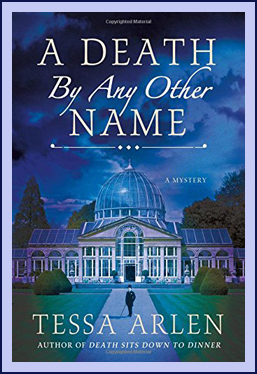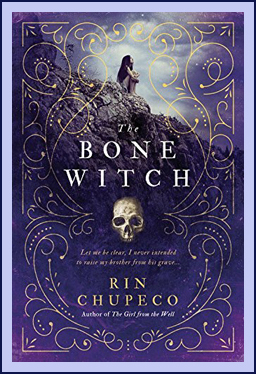Book Review - Joe Hill's Heart-Shaped Box
 Heart-Shaped Box by Joe Hill
Heart-Shaped Box by Joe Hill
Published by: William Morrow Paperbacks
Publication Date: June 18th, 2013
Format: Paperback, 400 Pages
Rating: ★★★★
To Buy
Judas Coyne acquired quite the reputation as a death-metal rocker. His love of the macabre has resulted in a unique collection of grim occult artifacts. Those from ardent fans and those he has sought out himself. From cooking for cannibals to a used hangman's noose, though perhaps the oddest item in his possession is an honest to goodness snuff film. But he doesn't have a ghost. Jude's assistant Danny discovered the listing on an online auction house. A woman is selling the spirit of her step-father which she is convinced has attached itself to his Sunday suit. This is bona fide proof of the afterlife and Jude wants it, buying it immediately for $1,0000. If only he knew why this suit was for him and what would happen once it arrived at his New York farm in a heart-shaped box. There is no doubt that the suit is haunted and the ghost is a vengeful spirit set on destroying Jude. Because Jude hasn't just spent his life collecting supernatural specimens, he has also collected groupies. Each named after the state they're from he hopes one day to have a complete set. His current squeeze is Georgia. But the ghost? The ghost is there because of Florida. And the ghost won't settle until Jude, Georgia, and anyone close to them is dead. The couple set out on a road trip with Jude's two dogs, Angus and Bon, in tow. They aim to exorcise the poltergeist. But will it kill them first?
Every once in awhile you stumble on a book that you know is flawed, you no it's not perfect, in fact you have many issues with it, but it's still somehow the right book at the right time and you devour it as fast as you can and enjoy the ride. For me that was Heart-Shaped Box. I had just finished reading the abysmal Newt's Emerald and, masochist that I am, had heard that the original e-book version was different than the printed version and as I already had it... I therefore tortured myself by reading the EXACT SAME BOOK. TWICE! Picking up Heart-Shaped Box after this experience was a relief. I should have realized once I started the book that Joe Hill was Stephen King's son, because the book had the same feeling, that quality of fast food, you know you shouldn't, but you crave it and enjoy it the whole time and then wonder at the end if perhaps it was worth it. For me it was. This book tapped into a more modern Gothic sensibility than Shirley Jackson. Shirley Jackson's writing is timeless, whereas this felt more of the moment, of the now. I don't think it will stand up over time but it does capture the time in which it was written, the feel of the American Gothic of that precise moment. Of music and road trips and hauntings from memories and past sins and actual real ghosts. Oh, I was SO ready for this book.
Because while this is a ghost story at the same time it's not really a ghost story. Like his own father, Hill explores the idea of what exactly ghosts truly are. Because while Jude is literally being haunted by the ghost of Craddock he is also haunted by his past, mainly his own father. Yes, Hill went there, much like his father did with Jack Torrance's daddy issues, but with the added irony that King is his own father... oh, can we say meta? Which is why Jude isn't able to defeat the actual ghost without confronting his own ghosts, by going home again. In a messy final act Jude is able to defeat Craddock by confronting the life he ran away from. Because memories, past experiences, emotions, they imprint on us and the world around us, they leave a residue. I always think of the Torchwood episode "Ghost Machine" where the team encounters "ghosts" which turn out to be fragments of emotion and memory imprinted on time. As Captain Jack says: "Human emotion is energy. You can't always see it, or hear it, but you can feel it. Ever had deja vu? Felt someone walk over your grave? Ever felt someone behind you in an empty room? Well, there was. There always is." That episode was able to shift my perception of the paranormal so that I was able to appreciate what Hill himself is doing in his approach to the concept of ghosts.
Yet for what the book got right it is flawed. In several regards, but to me and most members of my book club the biggest flaw was in the treatment of animals. If you are at all squeamish about animal abuse... this book has a lot of troubling incidents not for the faint of heart. I mean, yes, you should know what you're getting into, this is Gothic Horror, but still, animal cruelty is a whole separate kettle of fish. I seriously think I could handle the most graphic of depravities humans can inflict on each other but if a puppy or kitty dies, I can't deal. So know this going in, Angus and Bon are going to die. Horribly. Both from gunshot wounds protecting Jude as his familiars. Yet their deaths could have been noble if Jude had deserved their sacrifice. Because throughout the book, even before his trouble with Craddock, he treats these lovely dogs like shit. THAT is unacceptable. These dogs love him blindly and as is obviously apparent, he was unworthy not just of their love but any love. This story, to an extent, has a redemptive side, but I think there is no redemption for someone who mistreats animals. More than that, both dogs didn't have to die. Angus survived the initial fight that killed Bon and IF he had been taken to a vet and not thrown in the back seat of Jude's car, there was a chance. But he's just left there in pain to bleed to death. That's unacceptable.
But then again Jude and Georgia do some of the stupidest things imaginable. They never do what's logical. Then again, does anyone in horror do anything logical? There's a reason the Scream movies, poking fun at the stupidity of the horror genre, were so popular. Why would they take Angus to the vet when they don't even go to the hospital for Georgia's finger. This is perhaps the most vomit inducing aspect of the entire book. Georgia pricks her finger on a pin attached to Craddock's haunted suit. It quickly goes septic. The details are kind of lavished on this disgusting injury. Instead of going to the hospital she spends much time ignoring it or sucking on it like a little child with a wound. I'm not even going to address the issues that insight brings to light, but just harp on about the fact she never went to a hospital. I mean, she was convinced it was supernatural so that obviously it would only get worse until they defeated Craddock. How does she know this? Yes, she's kind of zoning out occasionally and watching snuff films in a trance, but I personally would demand an examination by a medical professional prior to blaming it on spirits. Who knows what could have been put on that pin as a secondary offensive attack? Plus. Just too much eww for me.
The nail in the coffin though, as it were, is that in the end this book is predictable. Because the trope that is the card played too often is sexual abuse, this time used with a side of incest. Obviously Florida had to have had a horrible upbringing to have her kill herself and to have Craddock have a need to exact revenge, but is sexual abuse the only trauma available? It certainly seems that way from all the books and TV shows and movies that go to that explanation. What I wouldn't give for say a serial killer or a cult, anything that doesn't go straight to the creepy sex place. But I think the reason why it always comes back to sexual abuse is because this is the worst it could be. Everyone can imagine the horror. Everyone can imagine the shame however unwarranted. Everyone can imagine it and wish it away. In fact, I wonder, how many people, when asked what their worst nightmare was wouldn't say sexual abuse? Hill though has a need to compound the creep factor by having Florida's sister complicit in the abuse and even offering up her own daughter to Craddock. This takes it to a level of creepy that I just don't want to go to. But more than that, I felt that because of who Jude is, because of the damaged women he drew to himself, it was just too expected. So while this book is a journey I enjoyed, it wasn't one that was always scenic and unexpected. Like a commute, there are some days it feels nice, familiar, but in no way was it unique.





























































 Strange the Dreams by Laini Taylor
Strange the Dreams by Laini Taylor The Endicott Evil by Gregory Harris
The Endicott Evil by Gregory Harris Lost Souls by Kelley Armstrong
Lost Souls by Kelley Armstrong The Awakening by Amanda Stevens
The Awakening by Amanda Stevens London Calling by Sara Sheridan
London Calling by Sara Sheridan
 Fiercombe Manor by Kate Riordan
Fiercombe Manor by Kate Riordan Mary McCarthy: The Complete Fiction by Mary McCarthy
Mary McCarthy: The Complete Fiction by Mary McCarthy All These Wonders: True Stories About Facing the Unknown edited by Catherine Burns
All These Wonders: True Stories About Facing the Unknown edited by Catherine Burns The Uninvited by Cat Winters
The Uninvited by Cat Winters The Woman in Black by Susan Hill
The Woman in Black by Susan Hill In This Grave Hour by Jacqueline Winspear
In This Grave Hour by Jacqueline Winspear Before the War by Fay Weldon
Before the War by Fay Weldon A Death by Any Other Name by Tessa Arlen
A Death by Any Other Name by Tessa Arlen Elementary, She Read by Vicki Delany
Elementary, She Read by Vicki Delany Angelica by Arthur Phillips
Angelica by Arthur Phillips Wuthering Heights by Emily Brontë
Wuthering Heights by Emily Brontë Silence Fallen by Patricia Briggs
Silence Fallen by Patricia Briggs The Bone Witch by Rin Chupeco
The Bone Witch by Rin Chupeco In the Name of the Family by Sarah Dunant
In the Name of the Family by Sarah Dunant The Confessions of Young Nero by Margaret George
The Confessions of Young Nero by Margaret George The Girl from Rawblood by Catriona Ward
The Girl from Rawblood by Catriona Ward Magic for Nothing by Seanan McGuire
Magic for Nothing by Seanan McGuire The Hollywood Daughter by Kate Alcott
The Hollywood Daughter by Kate Alcott You Are Here: An Owner's Manual for Dangerous Minds by Jenny Lawson
You Are Here: An Owner's Manual for Dangerous Minds by Jenny Lawson Big Mushy Happy Lump by Sarah Andersen
Big Mushy Happy Lump by Sarah Andersen


















